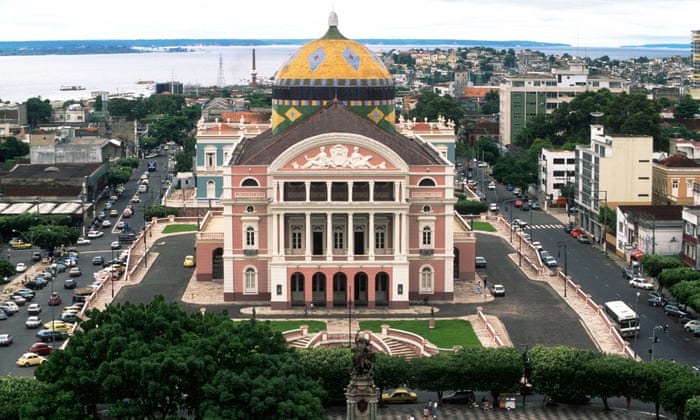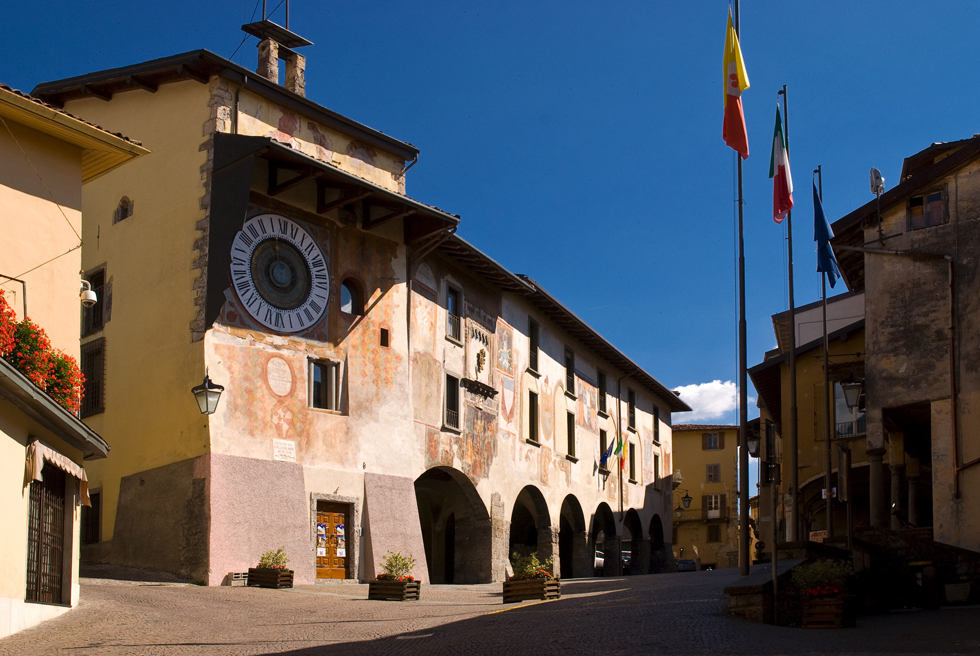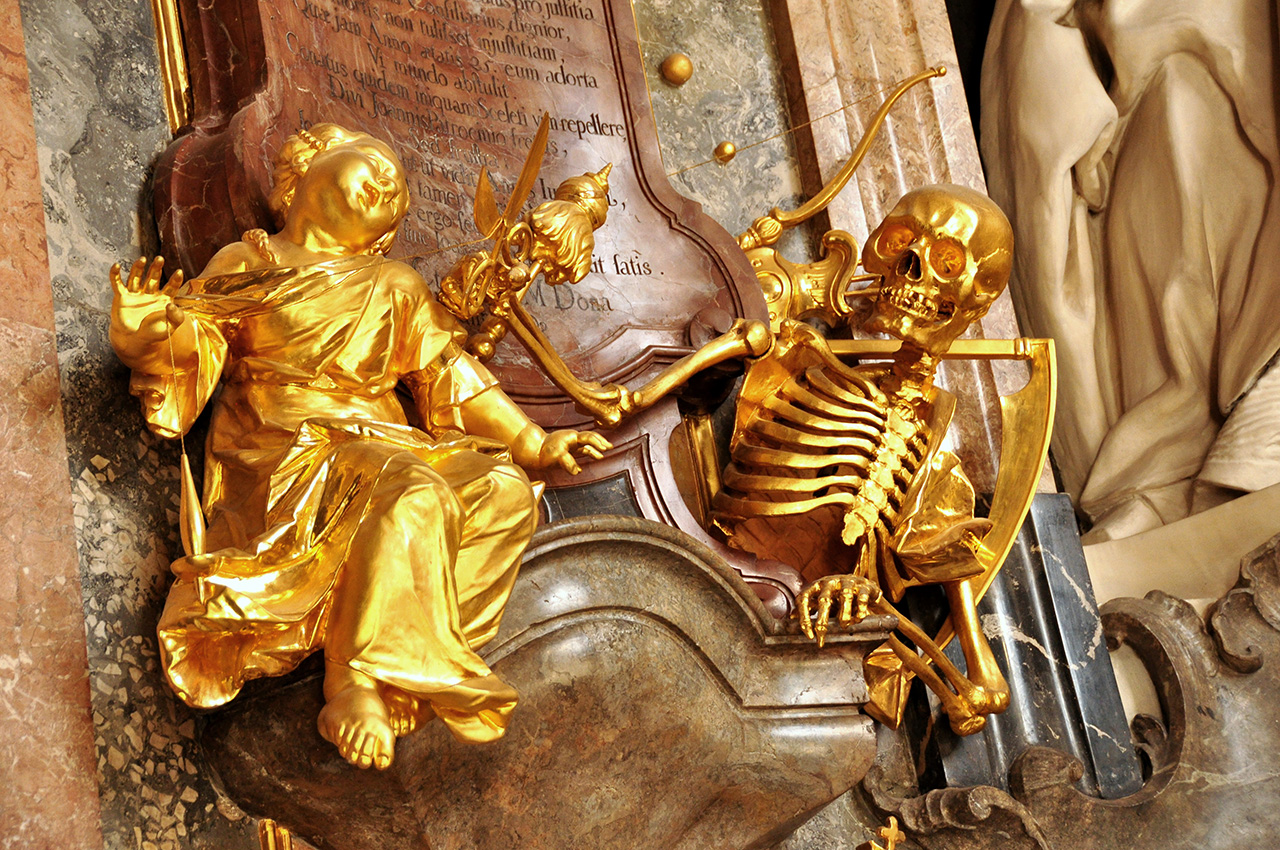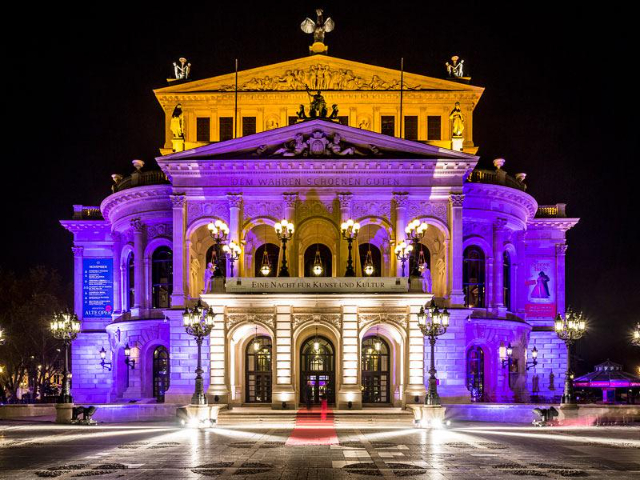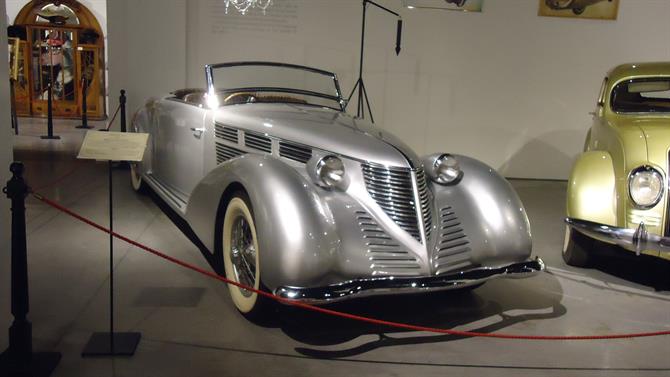The music of Manaus is not restricted to its wildlife. The ‘Paris of the Tropics’, as it became known in the late 19th Century, is home to a remarkable cultural monument: the Teatro Amazonas (Amazon Theatre), a majestic opera house that dominates the city’s main square. Testament to the wealth of Manaus at the height of its rubber boom, the theatre is a curious attempt to replicate European cultural taste in the heart of the tropical rainforest.The opera house was inaugurated on 31 December, 1896, after 15 years of painstaking construction and negotiation. With the exception of locally-sourced wood, all the materials were imported from Europe, and no expense was spared. One hundred and ninety-eight crystal chandeliers came from Italy, including 32 made from Venetian Murano glass, while Scottish cast iron holds up the 22 vibrating hollow columns that contribute to the excellent acoustics.The most elegant feature of the 700-seat theatre is the curvature of the auditorium, arrayed in the shape of a lyre. The Italian architect, Celestial Sacardim, modelled the interior on the Palais Garnier in Paris, and the ceiling, painted by a fellow Italian, offers the impression of looking up reverentially at the Eiffel Tower.
The theatre’s iconic dome is both innovative and controversial – even to this day
Not all of the artistry is European. The 75-metre-high stage is adorned with a curtain illustrated by Brazilian painter Crispim do Amaral, which depicts the local water goddess Iara amid the nearby ‘meeting of the waters’, between the black Rio Negro and the milky Rio Solimões.
The most imaginative innovation is the iconic dome, created from 36,000 tiles imported from Alsace, upon which a Brazilian flag is emblazoned. It was during the construction of the theatre, in 1889, that Brazil became a republic, ending the imperial rule of Dom Pedro II. The new republican spirit, a century after France’s own revolution, is evident in the motto at the centre of the flag, Order and Progress, which derives from the positivist philosophy of a Parisian, Auguste Comte.
